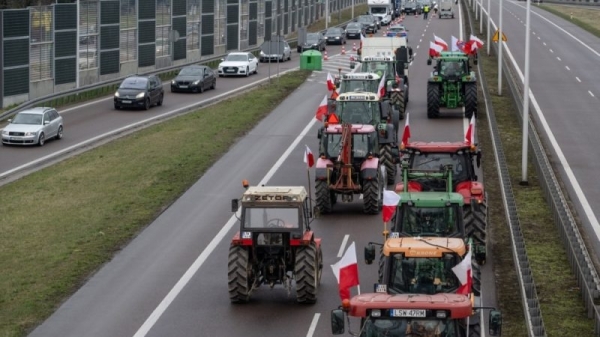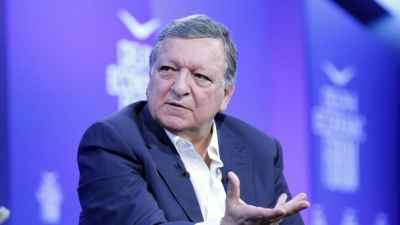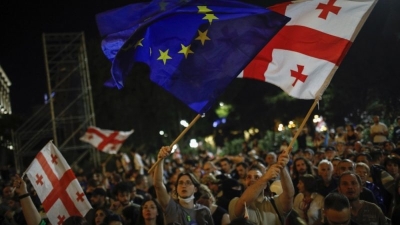Farmers’ protests contributed to Poland’s election result, data suggest

Ongoing farmers protests have influenced the results of the local elections in Poland, and may contribute to the outcome of June’s European elections, according to politicians and election data.
Sunday’s local elections in Poland ended with the victory of the PiS (ECR) party in the top regional assemblies, obtaining 33.7% of the votes, followed by Prime Minister Donald Tusk’s Civic Coalition (KO, EPP/S&D/Greens), which scored 31.9%.
Tusk’s coalition partners, the Third Way (Renew/EPP) and the New Left (S&D) scored below 20% and ranked third and fourth, respectively.
Tusk’s alliance, on the other hand, took many of the biggest cities, including Warsaw and Gdańsk, where KO’s candidates Rafał Trzaskowski and Aleksandra Dulkiewicz obtained victories in the first round.
PiS’ result may have been influenced by the protests of farmers all over the country, New Left MEP, former prime minister Marek Belka, told Euractiv.pl on Monday.
“The protests have driven the rural electorate to the polls, which resulted in PiS performing so well in the rural areas,” Belka explained.
This is confirmed by the data, which indicates that PiS scored 43% of the votes in the rural areas, while KO obtained only 20% and the Third Road only 16%.
EU trade policy to blame
The nationwide farmers’ protests echo similar demonstrations in other EU countries, with Polish farmers opposing the CAP component of the European Green Deal, which they believe is too restrictive and would hit Polish agriculture hard.
The second, more regional reason for protests concerns Ukrainian agrifood products flooding the Polish market as a result of Brussels’ decision to liberalise agricultural trade with Ukraine back in 2022 as part of the Autonomous Trade Measures (ATMs).

EU Parliament and Council seal last-minute deal to extend Ukraine’s trade benefits
EU lawmakers reached an agreement on the renewal of trade liberalisation measures with Ukraine on Monday (8 April), after member states reopened negotiations to reinforce safeguards against market distortions.
This led to reduced prices and demand for Polish domestic production, which caused massive losses for farmers.
Earlier this year, the Commission announced extending the ATMs for another year as a “continuation of the EU’s unwavering support for Ukraine’s economy,” which fostered further discontent among the Polish farmers.
“If the Commission approached the ATMs differently, the voters’ attitude might have been different,” Belka said.
The Polish agriculture sector is more supportive of PiS than of the incumbent ruling camp, according to the data by the Ipsos pollster, which shows that over 57% of farmers voted for PiS on Sunday.
Comparatively, the Third Way ranked second, having obtained only 15% of the farmers’ votes. The Civic Coalition scored even less, nearly 10%.
This does not mean that the wide majority of farmers do support PiS. Those who are disappointed by the PiS government, which ruled in Poland until last December, and accused it of inaction over the Ukrainian imports crisis, mostly abstained from voting.
With the Green Deal and the ATMs being under the EU’s jurisdiction, and farmers having a considerable impact on the election results in Poland, the ongoing situation in Polish agriculture may also impact the June European elections.
If the situation with Ukrainian imports is not solved by then, the farmers’ votes may augment the results of PiS, and, consequently, of the ECR party, which is in line with the expectations the new European Parliament will skew right.
(Aleksandra Krzysztoszek | Euractiv.pl)
Read more with Euractiv




